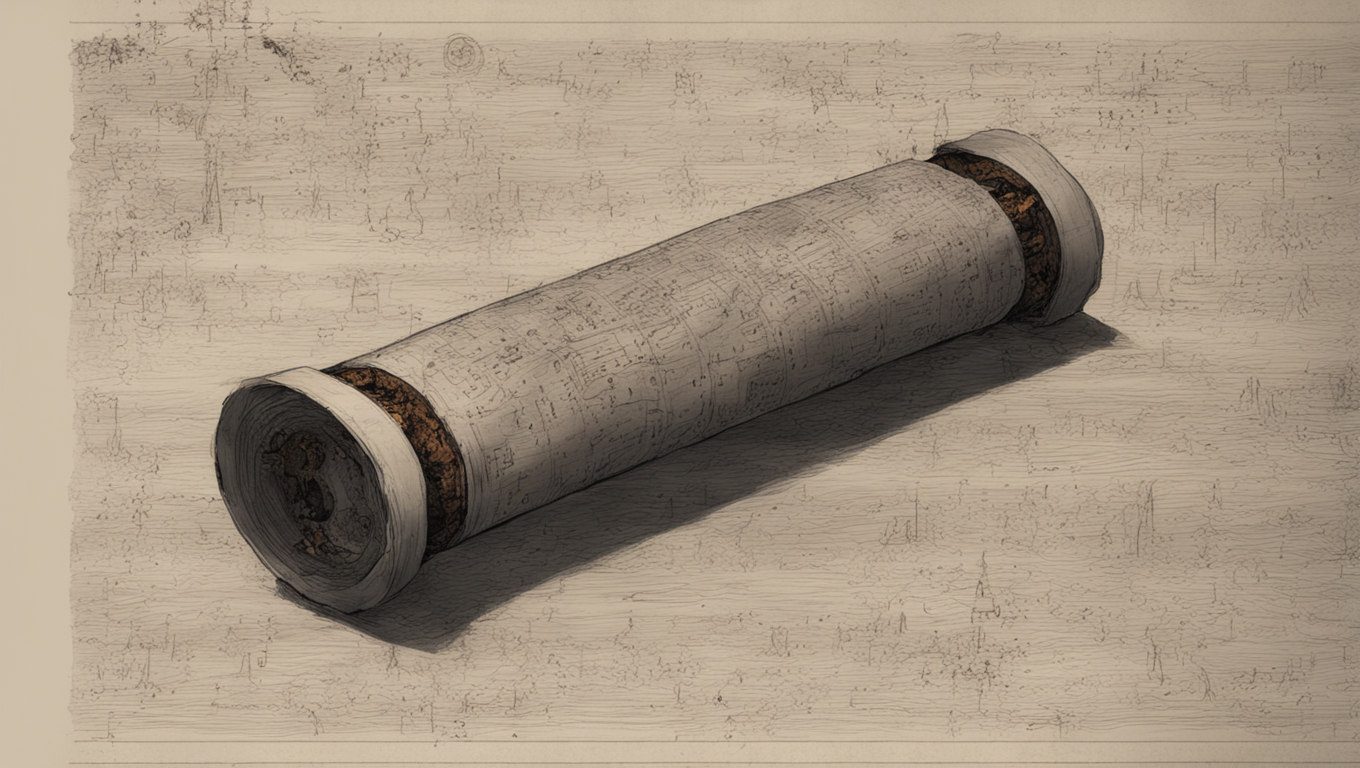Scholars of antiquity have made a groundbreaking discovery, thanks to artificial intelligence. A team of computer scientists armed with AI algorithms was able to read the hidden text of a charred scroll that was buried under the eruption of Mount Vesuvius nearly 2,000 years ago. The scroll was one of many papyrus scrolls stored in the library of a luxurious Roman villa in Herculaneum, which were burned to a crisp during the devastation caused by the volcano. Despite previous efforts to read the scrolls, the black ink was unreadable, and any attempts to open them resulted in them crumbling to pieces.
The breakthrough in deciphering the ancient scroll came from the Vesuvius Challenge, a contest launched in 2023 by computer scientist Brent Seales from the University of Kentucky. The challenge offered prizes for extracting text from high-resolution CT scans of a scroll taken at Diamond, the UK’s national synchrotron facility. After an intense competition, a team of three students – Youssef Nader in Germany, Luke Farritor in the US, and Julian Schilliger in Switzerland – won the $700,000 grand prize by successfully reading more than 2,000 Greek letters from the scroll.
Papyrologists who have studied the text recovered from the charred scroll were amazed at the feat. Dr. Federica Nicolardi, a papyrologist at the University of Naples Federico II, said, “This is the start of a revolution in Herculaneum papyrology and in Greek philosophy in general. It is the only library to come to us from ancient Roman times.” The scholars believe that this breakthrough opens up new possibilities for studying hundreds of other scrolls that are waiting to be read.
Brent Seales, the leader of the team that uncovered the text, expressed his excitement about this discovery and the future possibilities. He stated, “We are moving into a new era.” Seales plans to build a portable CT scanner that will allow researchers to image scrolls without having to move them from their collections, thus preserving their integrity.
The scroll that was deciphered discusses sources of pleasure, touching on music, food, and the combination of elements that contribute to pleasure. The author, likely Philodemus, poses philosophical questions about the nature of pleasure and its origins. This newfound knowledge provides valuable insight into ancient Greek philosophy and sheds light on the lives of the people in that era.
The success of the Vesuvius Challenge has sparked further interest in exploring other unread scrolls from Herculaneum and beyond. The technology used in this project could potentially be applied to papyrus wrapped around Egyptian mummies, revealing a wealth of information about the lives of ordinary ancient Egyptians. The challenge will continue this year, with the goal of reading 85% of the scroll and laying the groundwork for deciphering all the scrolls already excavated.
Nat Friedman, the founding sponsor of the challenge, reflected on the success and joy of the project. “When we launched this less than a year ago, I honestly wasn’t sure it’d work,” he admitted. “This has been pure joy. It’s magical what happened; it couldn’t have been scripted better.”
Thanks to the use of artificial intelligence and high-tech scanning technology, ancient texts once thought to be forever lost are now being resurrected. The deciphering of the charred scroll buried by Mount Vesuvius is a testament to the power of AI in unlocking ancient secrets. As scholars continue to push the boundaries of knowledge, we can expect more astonishing discoveries that will reshape our understanding of history.





Use the share button below if you liked it.